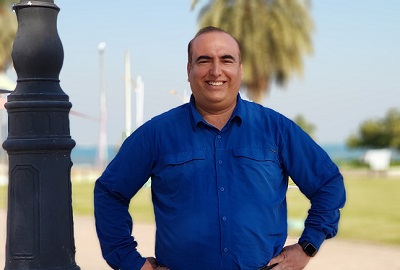Standards are there to be exceeded
Case Study: Muhammad Raheel Khan
Standards are important and sit at the very heart of health, safety and environmental management. However, those who truly succeed will often say that standards are not just there to be met, but to be exceeded.

For Sendan, a major plant, construction and maintenance contracting company headquartered in Jubail, Saudi Arabia, exceeding standards has been a significant driving force behind its exponential growth.
"When I joined Sendan back in 2007 we had around 300 workers. We now have over 4,000 workers in Saudi Arabia and a further 500 based outside the Kingdom mainly in GCC countries.” said Muhammad Raheel Khan, who as the company’s corporate head of HSE, has overseen safety, health and environmental performance for over a decade along with a team of 150+ EHS professionals. He also now heads up ProSafe, the organisation’s HSE services division.
“The start of my career with the company coincided with safety becoming increasingly important throughout the Gulf. This new focus was driven by the safety standards expected by local regulation and international clients, particularly in the oil and gas and construction sectors.
“It was common for clients to, for example, specify that contractors must have one safety officer for every 50 employees. However, as there was no real assessment of competence in place at the time, it was possible for anyone who could read, write and speak English to be appointed to this role.”
Muhammad explains that he and his colleagues aspired to a “much higher and more credible standard” for Sendan.
“We at Sendan didn’t just wanted to meet the requirement to have safety officers, we wanted to ensure they were able to make a difference on-site too. I had already taken the NEBOSH International General Certificate (IGC) myself and knew how much it had helped improve my own knowledge and competence. We decided to set ourselves the goal of making the IGC the minimum standard for all Sendan safety staff and rolled out a programme of training to make this a reality. Moreover we made holding the IGC (or equivalent) mandatory when hiring new members of our safety team.”
“We believe that the IGC programme, along with other initiatives, played a major role in raising the overall organisational safety competency and has resulted in enhancement of safety culture. Our recordable injury rate has fallen significantly, and this has resulted in considerable direct and indirect savings such as lower insurance premiums, minimum work stoppages and improved employee morale.” explained Muhammad. “We’ve also seen significant business growth as our reputation for safe working practices has increased. It has reached the point where many of our clients now ask for our EHS teams to assist them on projects, emergency shutdowns and so on. So, safety has even become an added value service.”
Sendan has received many accolades for its safety success including numerous awards and being selected as the Best Contractor on several high-profile projects. The organisation’s commitment to achieving zero accidents, diseases and harm at work has most recently been recognised by the ISSA/ILO through its ‘Vision Zero’ global campaign.
Muhammad ended our chat by saying: “I’ve seen the benefit of investing in safety training and what you can gain on a personal level. At Sendan, the decision to make the IGC mandatory for our safety team has multiplied this impact many hundreds of times. What a difference it has made to our operations and most importantly to the safety of our workers. I’m delighted with our achievements so far and look forward to many more.”
Muhammad can be contacted through his LinkedIn profile.
